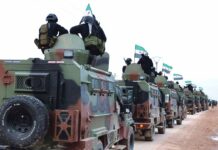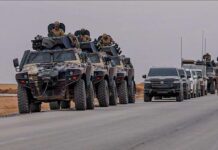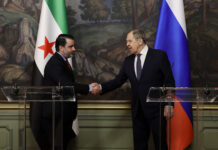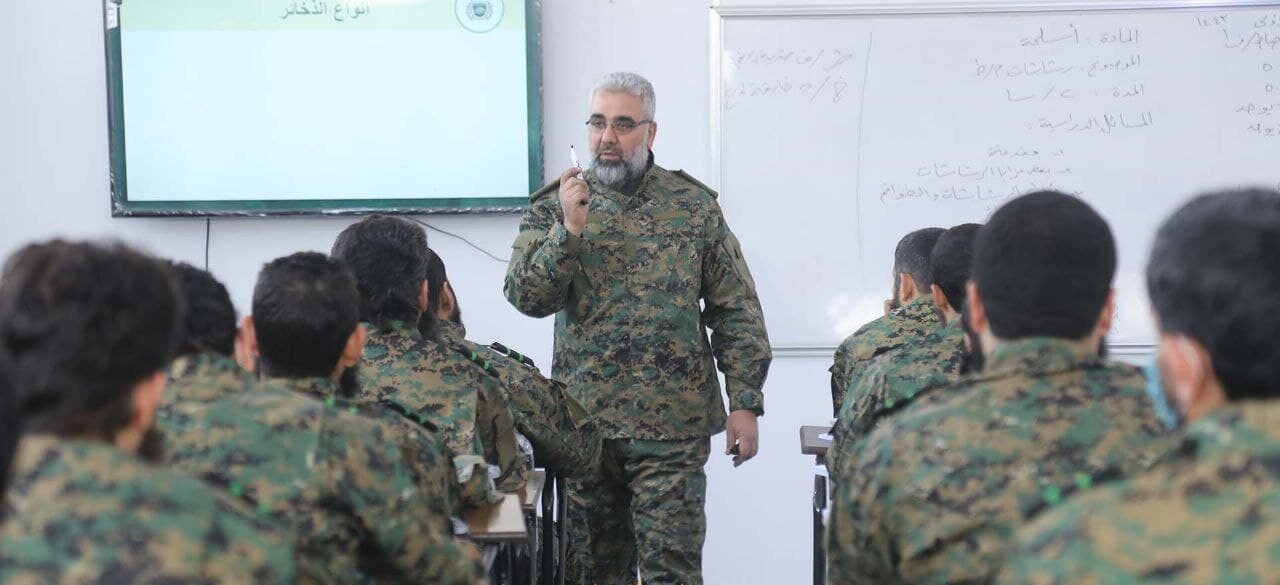
Syria could be considered as one of the most turbulent battlefields of the 21st century. Numerous countries with various agendas hovering over this space, and most proposed solutions for the conflict only on pen and paper, the only obvious outcome of the war weighs highly on a complete military victory.
The diverse agendas of powerful nations had adverse effects on the battle-space, and challenged the revolutionary factions. After 10 years of conflict, mergers of many revolutionary groups and subsequent decay of others, could uniting all armed factions under the umbrella of a unified military body give the revolutionaries the strength and recognition they so desperately need?
It would certainly be a milestone, if the prerequisites of an internationally accepted Ministry of Defense were attained by the factions in northern Syria. Colonel Ahmed Hammada, who previously defected from the Syrian Arab Army, commented to Levant 24 on the reality of the revolution saying, “Negative, ill-considered moves affected the developments of the revolution adversely, therefore it is clear today that it is incumbent upon the factions and the Ministry of Defense (of the interim government) to organize all their forces under a proper Defense Ministry.”
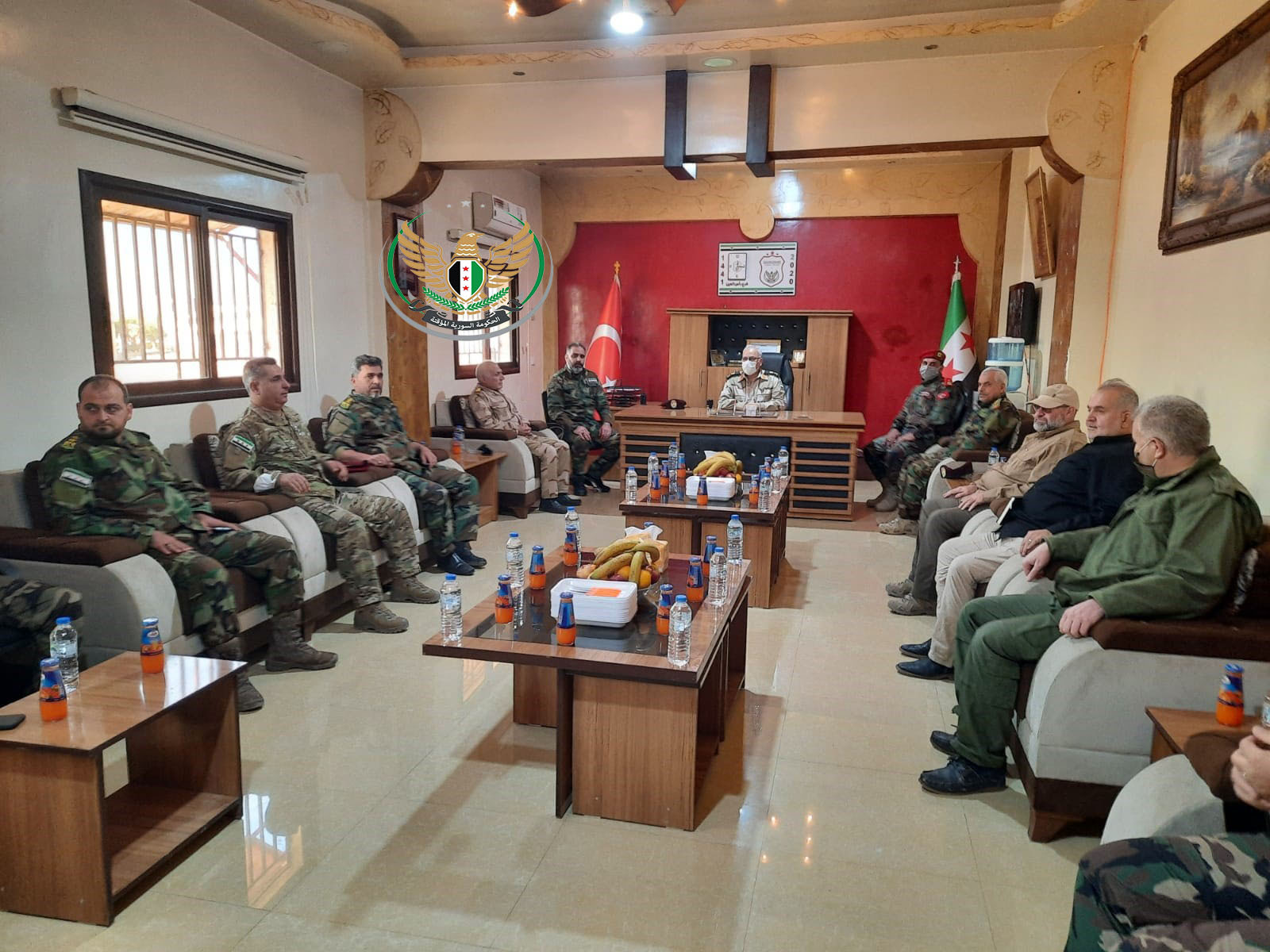
Although a Ministry of Defense exists in Northern Syria (under the interim government), its role is merely an umbrella to cover the splintered reality of the factions rather than to organize and manage the armed groups under its wing. The Ministry is not associated with most of the roles which are inherently related with a traditional Ministry of Defense. In addition, most of the active fronts are out of their reach and control, since they are held by the Fathul Mubeen operations room.
After the Russian intervention in the year 2015, the revolutionaries had a lack of success in many of their offensives against the regime, and with the Russian air-power and the Iranian manpower, the regime was able to occupy many areas which were in opposition control from 2011 to 2015. The core of their failure often lied in disunity.
This was evident during the 2017 Hama offensive, where some larger revolutionary factions declined to join as they were preoccupied with another, and also during the defensive battles from 2018 to 2020, where factions avoided participation due to differences in military strategies.
In the end, the burden was borne by all and loss of land resulted in the revolutionaries looking for solutions under a despairing situation. Jerome Drevon, Senior analyst on Jihad and Modern Conflict at Crisis Group, mentioned to Levant 24 that the purpose is not simply to establish a Ministry of Defense, but in reality, the underlying objective is ultimately to re-structure the armed opposition in a more coherent and disciplined manner that would look more like a state-army
According to many observers, the Syrian Salvation Government has shown great credibility as a government in bringing order to the war-torn northern Syria. It has managed to unify the medical facilities, the courts, the roads and highways departments, and likewise aid organizations under various ministries in their control. Thus, it seems binding upon the government to centralize the military division under their authority if it is willing to unite the opposition factions with a unified leadership and provide defensive or offensive capabilities. Sources from within government circles claim they are trying to coordinate efforts towards this goal.
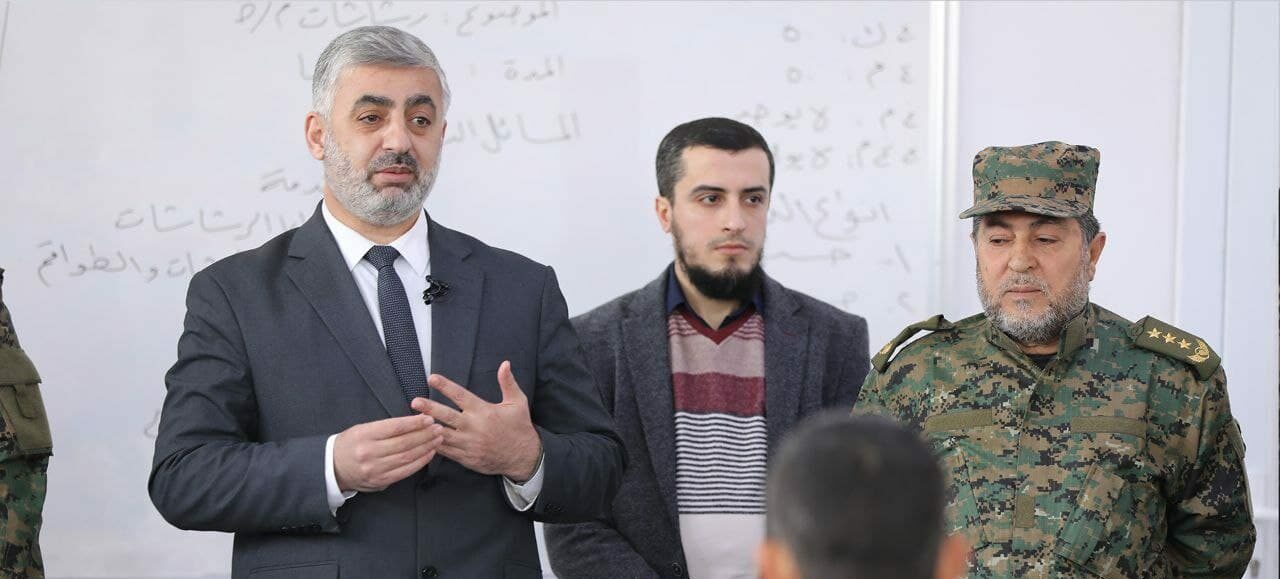
Currently, there are four major factions present in northern Syria, namely Hayat Tahrir Sham, Jabhat Sooriya Tahrir, Jabhat Watania Tahrir, and Jaish Watani. Combined, the factions approximately reach up to 100,000 in military personnel. Most of the factions have battle-hardened leaders and soldiers, and bringing them under one unified system can produce great military strength.
Apart from that, northern Syria and their bordering Turkish cities currently host many of the high ranked military officials who resigned from the Syrian regime. Many of whom are known to be cooperating extensively with the aforementioned factions, and have also taken steps towards establishment of a military college in the liberated areas to train officers and field commanders from all factions.
According to the Director of the Military College Brigadier General Abdul Rahman Sheikh, “The military college is established to rehabilitate and train the revolutionaries and aid them to move towards organization, which would enable the military sector to work within the governmental structure.”
It is vital that these institutions move forward in order to combine the field knowledge of the military personnel with the academic knowledge of ex-military officials, which can ensure the distribution of prominent military leaders within the ranks currently present. Brigadier General Abdul Rahman Sheikh also mentioned that the college is open to all factions and is developed to teach and rehabilitate individuals and elevate their graduates into certified Brigadiers and Generals.
The process towards the assembly of a credible Ministry of Defense can be labor-intensive, but its fruits would be worthwhile. Commenting on the establishment of a comprehensive Ministry of Defense, Colonel Ahmad Hammada mentioned that “if the Ministry of Defense is the sole governing body for the unified army, the architect of the defensive and offensive strategies, and manages to hold firm to a specific battle doctrine, it would be something very positive, unlike the Ministry of Defense of the interim government, which is only a formal institution.”
In reputable armies, the defense ministries control all personnel, weapons arsenal, production facilities, and research and development under their management. Colonel Hammada said, “It is incumbent upon the military factions to agree that they would not be able to succeed or go forward without real military organization which acts similar to national militaries.”
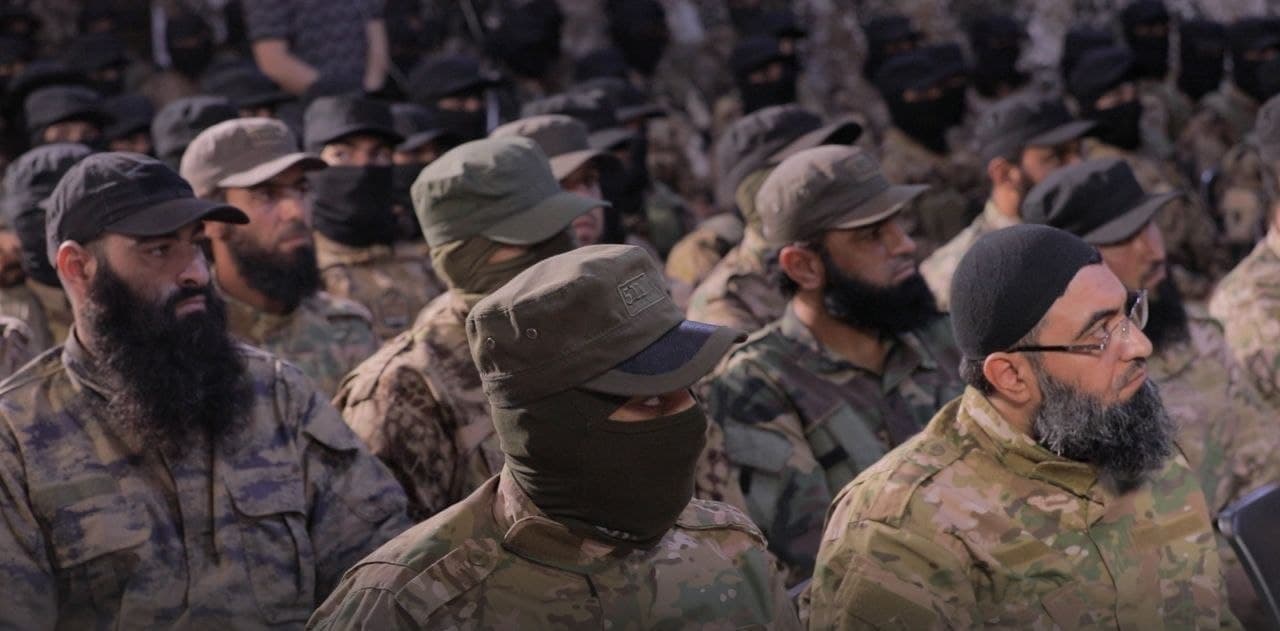
Currently, most departments which assemble a ministry are present, but are working individually under each faction respectively. It is clear that unifying the departments would provide the Ministry with a weapons cache equivalent of a small nation. In addition, the production faculties would be able to manufacture weapons and ammunition more swiftly, and skills present within the experts in various fields within the factions could be interchanged. If achieved, this can reduce costs of the military, and channel funding properly to the most deserving military divisions.
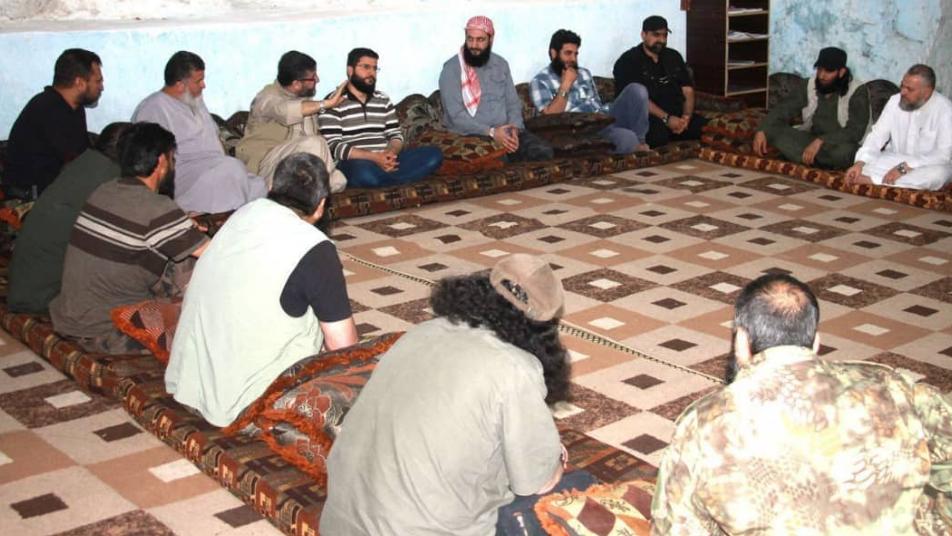
Another important aspect which can be massively improved is the unified training schemes for all military personnel which can then be utilized to rank soldiers and cadets according to their performance and experience. The establishment can also help bring order to irresponsible acts and behaviors by army personnel by setting up unified military courts, something which often occurs in Euphrates Shield areas.
Lastly, an organized military body would be able to shed off the labels of extremism and terrorism which opponents utilize to discredit the revolution until this day. “Unifying the armed opposition in a single Ministry of Defense would be a positive step for the Syrian opposition, since it would bring it more coherence and consistency, but also help it be a real alternative on the ground,” comments Jerome Drevon on its possible establishment.
After a decade of war, evidence suggests that most of the revolutionary success came from unified factions, and an example of which was during the 2015 Jaish-Fath operations room which managed to free vast swathes of land and cities in quick succession, like Idlib city, Ariha, and Jisr Shugour.
More and more voices from within the military circles claim it is not feasible to sustain operation rooms due to the huge number of military personnel and armaments needed to deploy, and also due to the sheer strength showcased by the enemy. Therefore, according to them, the only viable solution to all military problems in the Syrian arena is a unified Ministry of Defense comprising the experienced high ranked military officers and the field experts from the factions who have proved success on the battlefield.

